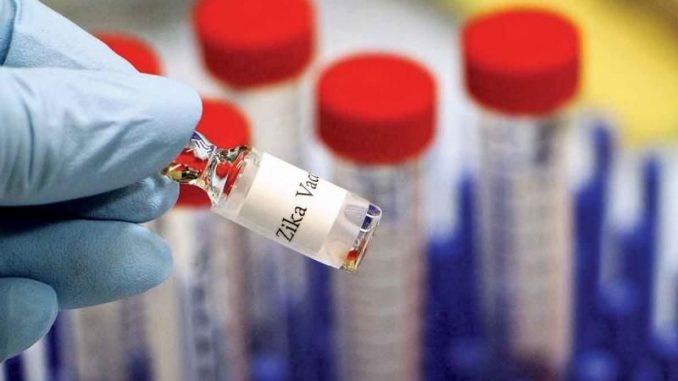
Researchers in Quebec have been given the go-ahead by officials with Health Canada and the U.S. Food and Drug Administration to start testing a controversial zika vaccine.
The vaccine is designed to protect against the mosquito borne zika virus allegedly responsible for the birth defect, microcephaly.

BYPASS THE CENSORS
Sign up to get unfiltered news delivered straight to your inbox.
You can unsubscribe any time. By subscribing you agree to our Terms of Use
Latest Video
Forty healthy volunteers from Quebec City, Miami and Philadelphia have been recruited to act as guinea pigs for the DNA-based vaccine.
Natural News reports:
What are DNA vaccines?
The U.S. Centers for Disease Control defines DNA vaccines as “purified plasmid preparations containing one or more DNA sequences capable of inducing and/or promoting an immune response against a pathogen.”
Health practitioners often prefer these vaccines because they are believed to be more stable, have a minimized risk of accidental infection by the pathogen, and require no refrigeration, according to Harvard College Global Health Review.
“These features are appealing to practitioners in the developing world, burdened with disease-susceptible populations and lack of proper infrastructure for maintaining traditional vaccines.”
The scientific community first became interested in DNA vaccines in the early 1990s, “when it was reported that plasmid DNA, delivered into the skin or muscle, induced antibody responses to viral and nonviral antigens,” reports the medical journal Clinical Infectious Diseases.
However, the safety of such vaccines remains uncertain. Past research suggests that DNA vaccines when injected may cause “insertional mutagenesis,” meaning mutations may result due to the insertion of new genetic material into a normal gene.
Research suggests DNA vaccines could increase cancer risk
“The possibility of insertional mutagenesis is a concern that needs to be more rigorously tested,” wrote researchers in a report entitled The Emerging Role of DNA Vaccines.
“While there is no evidence that the introduced DNA integrates into the host genome, if it were to occur, it would raise the specter of carcinogenesis; oncongenes may be turned on or tumor suppressor genes inhibited.
“What if DNA circulated throughout the body after injection and integrated into germ cells? Might subsequent generations express the antigen from birth and develop tolerance, instead of immunity, to the pathogen? Anti-DNA antibody formation and the possibility of autoimmune diseases is another concern.”
DNA vaccines and autoimmune issues
One of the greatest concerns about DNA vaccines is the adverse effects they may have on the immune system, say scientists, adding that unlike alternate forms of gene therapy which target sick patients, DNA vaccines target “the young and the healthy.”
“If host cells express antigen for a prolonged period, what effect would that have on the immune response? Could it lead to host tolerance or an exaggerated, damaging attack on tissues expressing antigen?”
Some scientists say yes, adding that this could result in chronic inflammation.
Despite the risks, vaccine manufacturers looking to capitalize on the Zika hysteria are quickly moving forward with the experimental vaccine trials.
“In phase 1 we’re looking only at safety and immunogenicity, or the building of immune protection,” said Gary Kobinger, director of Universite Laval’s Infectious Disease Research Centre.
“We look at immune responses in those volunteers and compare those to immune responses we have documented in animals that were protected from the infection.”
DNA vaccines are regulated by the FDA’s Center for Biologics Evaluation and Research. Thus far, the agency has given the green light for researchers to begin phase 1 clinical studies of DNA vaccines for malaria, hepatitis B and HIV.
The company producing the Zika vaccine, Inovio Pharmaceuticals, says the second phase of the trial will test its efficacy on a larger group of volunteers from the Caribbean or Latin America by 2017.


